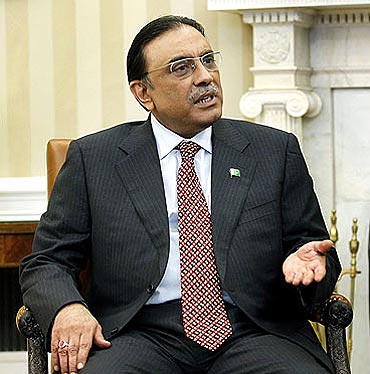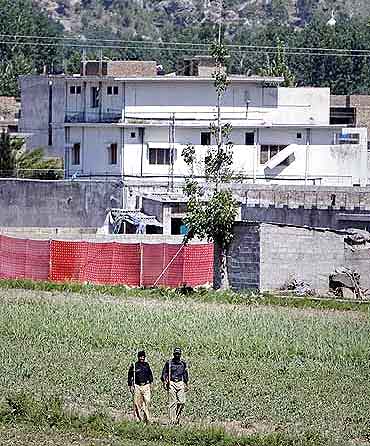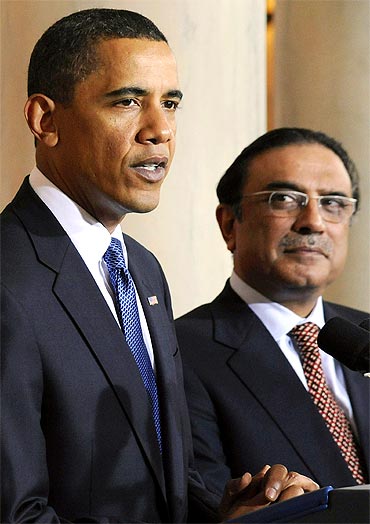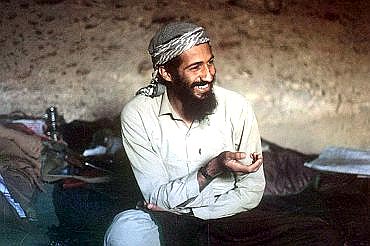 | « Back to article | Print this article |
Pakistan wasn't informed about Osama raid: Zardari
Pakistan President Asif Ali Zardari says the raid by United States special forces to kill the world's most wanted terrorist Osama bin Laden deep inside his country was "not a joint operation."
In an opinion column titled Pakistan did its part published in the Washington Post, Zardari also said the whereabouts of the Al Qaeda leader, who was killed in the military garrison town of Abbottabad, about 120 km from Islamabad on Monday, was not known to the Pakistani authorities.
"Although the events of Sunday were not a joint operation, a decade of cooperation and partnership between the United States and Pakistan led up to the elimination of Osama bin Laden as a continuing threat to the civilised world," he said.
Please click NEXT to read more...
'Osama wasn't anywhere we had anticipated he would be'
At a White House briefing, John Brennan, deputy national security advisor for counterterrorism and homeland security, said Islamabad was not informed about the operation until the US forces had left Pakistani airspace and that no Pakistani individuals were engaged in the operation.
"We did not contact the Pakistanis until after all of our people, all of our aircrafts were out of Pakistani airspace," he said at a White House briefing.
With Pakistan facing the heat on the presence of bin Laden in its soil before being eliminated, Zardari said, "He (Osama) was not anywhere we had anticipated he would be, but now he is gone."
"Pakistan, perhaps the world's greatest victim of terrorism, joins the other targets of Al Qaeda the people of the United States, Britain, Spain, Indonesia, Afghanistan, Turkey, Yemen, Kenya, Tanzania, Egypt, Saudi Arabia and Algeria in our satisfaction that the source of the greatest evil of the new millennium has been silenced, and his victims given justice," he said.
'Pak's early assistance led to this day'
Against the backdrop of questions being raised on Pakistan's cooperation with the US in the war on terror, Zardari sought to take some credit for the killing of bin Laden, saying Pakistan can take "some satisfaction" that our "early assistance" in identifying an Al Qaeda courier ultimately led to this day.
"Some in the US press have suggested that Pakistan lacked vitality in its pursuit of terrorism, or worse yet that we were disingenuous and actually protected the terrorists we claimed to be pursuing. Such baseless speculation may make exciting cable news, but it doesn't reflect fact. Pakistan had as much reason to despise Al Qaeda as any nation. The war on terrorism is as much Pakistan's war as it is America's. And though it may have started with bin Laden, the forces of modernity and moderation remain under serious threat," he said.
"Let us be frank. Pakistan has paid an enormous price for its stand against terrorism. More of our soldiers have died than all of NATO casualties combined. Two thousand police officers, as many as 30,000 innocent civilians and a generation of social progress for our people have been lost," he said.
'Justice against Laden wasn't just political, but personal'
Striking a personal note, the president and Pakistan Peoples Party leader said, "And for me, justice against bin Laden was not just political; it was also personal, as the terrorists murdered our greatest leader, the mother of my children. Twice he tried to assassinate my wife."
Noting that only hours after bin Laden's death, the Taliban reacted by blaming the government of Pakistan and calling for retribution against its leaders, and specifically against him as the nation's president, Zardari said, "We will not be intimidated. Pakistan has never been and never will be the hotbed of fanaticism that is often described by the media."
"We have not yet won this war, but we now clearly can see the beginning of the end, and the kind of South and Central Asia that lies in our future," he added.



